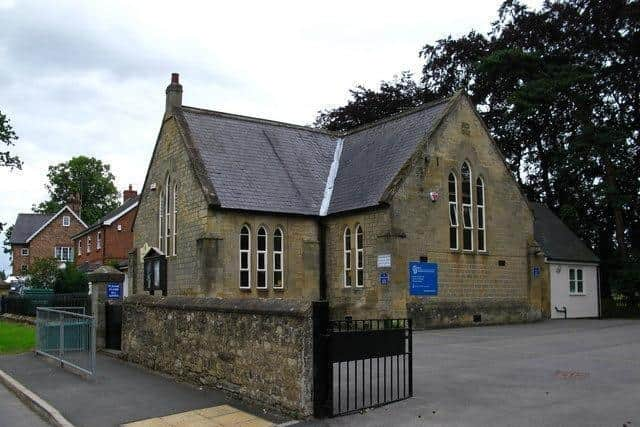Rural primary school closures in Yorkshire 'only likely to get worse'
Andrew Smith, the Diocese of York’s director of education, issued the bleak situation facing many communities in North Yorkshire as councillors were told some 16 primary schools had closed in the past six years.
The closed schools include ones at Drax, Horton in Ribblesdale, Rathmell, Ingleby Arncliffe, Swainb, Ings, Burnt Yates, Arkengarthdale, Clapham, Whitby, Kell Bank, Weaverthorpe, Baldersby St James, Harrogate, Hovingham and Skelton.
Advertisement
Hide AdAdvertisement
Hide AdMr Smith told a meeting of North Yorkshire Council’s children and families scrutiny committee the diocese was keenly aware of the vulnerability of many rural schools as dozens of Church of England schools co-run by North Yorkshire Council had fewer than 100 pupils, many with falling rolls.


Councillors heard financial pressures on the county’s smaller schools was rising, with the average school deficit soaring from £16,400 in 2015 to £57,900 this year, the number of primary school age pupils was set to fall in every area of the county except the Selby area and Craven.
The meeting was told school rolls were falling most in rural areas. Richmondshire is set to see almost nine per cent fewer primary school pupils than in had in 2017, and the Scarborough area 6.5 per cent fewer.
As many small rural schools struggled to balance the books, the meeting heard, governors and headteachers were forced to make cutbacks and decisions that could result in an ‘inadequate’ rating from Ofsted, which automatically triggers moves to convert schools into academies.
Advertisement
Hide AdAdvertisement
Hide AdMr Smith said: “We have known for some time we are going to be facing an oversupply of places and therefore there needs to be a planned way of working to think what happens to schools going forward where we have got over-capacity.
“Over-capacity brings its own financial challenges and that begins a downward spiral with regards to finances.”
He said as academies legally could not underpin their budgets with deficits as the council could, they were reluctant to take on smaller schools.
Mr Smith said: “We are in a position where we have to have a closure process for schools because there is no other alternative.
Advertisement
Hide AdAdvertisement
Hide Ad“We are highly reactive in the system and don’t necessarily have a plan for it. I think it is only likely to get worse because where the financial projections are going it is likely we are going to face more school closures.
“It is a strategic, systemic problem in a fragmented system…”
Council officers then told the meeting Mr Smith had summed up the situation excellently.
They said the council was examining how it could encourage schools to work together to create “strength in numbers” as it was the most vulnerable schools could find themselves without an academy sponsor.
Advertisement
Hide AdAdvertisement
Hide AdCouncillors urged the authority to give struggling schools more back office support.
After councillors also called on the authority to intervene earlier, such as when a school was seen to be making cutbacks on spending such as music lessons, officers said they were holding “a series of quite challenging discussions with governing boards over this autumn term where there are financial challenges”.
An officer told members: “We are having those early discussions so governors are aware of what the risks are.”
Councillor George Jabbour questioned whether the additional transport costs the council could arise out of a school closure could be invested in the school
Advertisement
Hide AdAdvertisement
Hide AdHe said: “It could save a school in theory, depending on the numbers.”
The meeting heard school funding was separated by Government from the council’s budget, which funded school transport, and the authority was prohibited from using its budget for schools.
